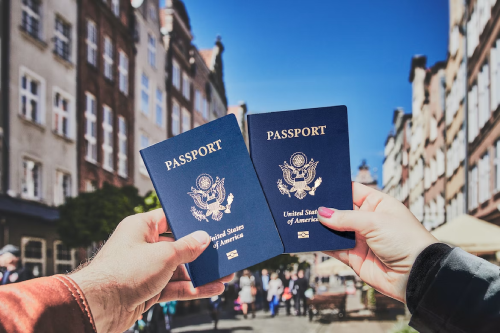
Since the world became more globalized, the rich have been increasingly investing in second citizenships.
There are many reasons for this trend. Political instability is one key factor driving the demand for second citizenships among the wealthy. In times of turmoil, having a second citizenship can provide a safety net, allowing people to live and work abroad if necessary.
It also gives them the option to leave their home country permanently if they feel it’s no longer safe or stable.
The current political climate in many parts of the world is fuelling this trend. In countries like Venezuela and Turkey, which have experienced significant political upheaval in recent years, second citizenship applications have skyrocketed.
Wealthy individuals from these countries are looking to protect themselves and their families by investing in citizenship elsewhere.
Another reason why the rich are investing in second citizenships is taxation. In high-tax jurisdictions like France and Belgium, owning property or assets overseas can help people minimize their tax burden.
By holding citizenship in a low-tax country like Monaco or Liechtenstein, they can enjoy greater financial privacy and keep more of their money out of reach of domestic authorities.
There are also many lifestyle benefits that come with holding a second citizenship. For instance, citizenship in an EU country entitles holders to live and work anywhere in the bloc. And having a passport from a country like Singapore or the United Arab Emirates gives holders visa-free access to hundreds of destinations around the world.
So, it’s no wonder that billionaires are increasingly investing in second citizenships. These citizenship investment programs offer greater stability, flexibility and privacy – all factors that are very valuable to the ultra-wealthy.
Roman Abramovich, the Russian billionaire owner of Chelsea Football Club, is one of the latest to join this trend.
Earlier this year, he applied for Israeli citizenship after months of speculation about his future in the UK. It’s believed that Brexit was a key factor in his decision, as it created uncertainty about the status of European citizens living in the UK.
Abramovich isn’t the only wealthy Russian to invest in an overseas citizenship. Since Vladimir Putin came to power in 1999, there has been a brain drain of wealthy Russians leaving the country. Many have cited Putin’s repressive regime and corruption as their reasons for leaving.
In recent years, Russia has also become increasingly isolationist, making it harder for its citizens to travel or do business abroad. This has further driven wealthy Russians to seek citizenship elsewhere. As a result, countries like Cyprus and Montenegro have become popular destinations for Russian investors seeking second citizenship.
It’s clear that the trend of wealthy individuals investing in second citizenships is only going to continue. With more and more billionaires looking to protect themselves and their families, citizenship investment programs are likely to experience even more demand in the years ahead.
Some of the most popular citizenship by investment programs include:
Cyprus
For a investment of €2.5 million, investors can get citizenship in this Mediterranean country. Cyprus also offers a fast-track citizenship program for €5 million investments.
Montenegro
Along with full EU membership, Montenegrin citizenship gives holders visa-free access to the US. The government is currently accepting investments of €250,000 in real estate or €450,000 in government bonds.
Malta
Another EU member state, Malta offers citizenship in return for a minimum investment of €650,000 in property or €150,000 in Maltese government bonds. Investors must also make a contribution of €30,000 to the National Development and Social Fund.
Antigua and Barbuda
For a investment of US$400,000 in real estate or a US$1.5 million donation to the government, investors can obtain citizenship in this Caribbean country.
Dominica
Citizenship in Dominica can be obtained for an investment of US$100,000 in government bonds or a real estate purchase of at least US$200,000.
St. Kitts and Nevis
One of the most popular citizenship by investment programs, St. Kitts and Nevis requires a minimum contribution of US$250,000 to the Sugar Industry Diversification Foundation. Real estate investments start at US$400,000.
Vanuatu
For a donation of US$160,000 to the Vanuatu Development Support Program, investors can receive citizenship in this South Pacific nation.
Grenada
Second citizenship in Grenada can be obtained for a investment of US$350,000 in real estate or a US$200,000 donation to the National Transformation Fund.
Nauru
For a payment of US$1 million, investors can obtain citizenship in this Pacific island nation.
Cape Verde
Acquiring second citizenship in Cape Verde is available for a investment of €500,000 in real estate or a €250,000 donation to the government.
There are many reasons why billionaires are investing in second citizenships. Political instability, taxation and lifestyle benefits are just some of the factors driving this trend.
With more and more wealthy individuals looking to protect themselves and their families, citizenship investment programs are likely to experience even more demand in the years ahead.







